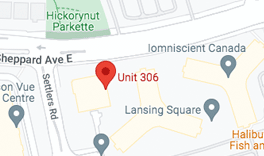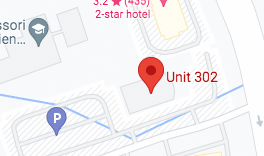
The IT job market is highly competitive. According to LinkedIn, 50% of candidates are filtered out before the interview stage due to a lack of preparation. The key to standing out is thorough preparation, not only in technical skills but in presenting yourself as a well-rounded candidate. Proper interview preparation for IT jobs is essential, focusing on research, technical expertise, behavioural skills, and professionalism. This guide will help you navigate the interview process and increase your chances of landing your dream IT job.
Researching the Company and Role
Understanding the Company
A common mistake among candidates is not thoroughly researching the company before an interview. For IT jobs, it’s essential to understand the company’s mission, culture, and technological environment. Begin with the company’s website to get a sense of its core values and recent projects. Look for press releases, blog posts, and even customer reviews to understand how the company is perceived externally. Pay attention to the company’s technology stack—this can give you valuable clues on what technical skills you should highlight in your interview.
Analyzing the Job Description
The job description is your roadmap for interview preparation. Break it down by listing all required skills and qualifications, then match them to your experience. For instance, if the job calls for Python proficiency and database management, think of specific examples where you’ve used these skills effectively. Tailor your resume and interview responses to show how your qualifications align with the role. This method ensures you meet the technical requirements and demonstrates that you understand the job’s nuances.
Preparing for Common IT Interview Questions
Technical Questions
IT job interviews often include technical assessments to gauge your expertise in areas such as coding, network troubleshooting, and systems architecture. Typical questions might ask how you would optimize database queries or debug a software issue. The key to answering these questions is clearly breaking down your thought process. Explain how you would approach the problem, the steps you would take to resolve it, and why you’ve chosen a specific solution. Practicing with mock technical questions will sharpen your problem-solving skills.
Behavioural Questions
Employers assess your technical capabilities and how well you’ll fit into their team. Behavioural questions are designed to evaluate your soft skills, such as communication, teamwork, and adaptability. Common questions include, “Tell me about a time when you had to work under pressure” or “How do you handle conflicts within a team?” Use the STAR method (Situation, Task, Action, Result) to answer these questions. This structured approach ensures you provide a clear narrative with measurable outcomes, showcasing your ability to navigate challenges effectively.
Practicing Technical Assessments
Coding Challenges
Coding challenges are a standard part of IT interviews, particularly for roles that require programming expertise. These challenges can be administered through online platforms or live during the interview via whiteboard coding. The types of problems can range from basic algorithms to complex data structures. Preparation is key. Practice regularly on coding platforms like LeetCode and HackerRank to improve your speed and accuracy. Focus on key areas such as sorting algorithms, binary trees, and dynamic programming, as these are frequently tested in coding interviews.
System Design Interviews
System design interviews are particularly common for mid- to senior-level IT roles. These interviews assess your ability to architect complex systems, such as designing a scalable e-commerce platform or building a distributed data storage system. To prepare, focus on understanding key design principles like scalability, fault tolerance, and load balancing. Familiarize yourself with case studies of existing system architectures and be ready to explain why you would make specific design choices. The goal is to demonstrate your ability to think critically and design systems that meet the company’s needs.
Showcasing Your Skills and Experience
Crafting Your Elevator Pitch
An elevator pitch concisely summarizes your qualifications and career goals, typically delivered in 30 to 60 seconds. This pitch is your opportunity to make a strong first impression during the interview. Focus on your key technical skills, years of experience, and any standout projects you’ve worked on. Practice delivering your pitch confidently, in-person and virtually, to ensure you come across as polished and prepared. A well-crafted elevator pitch can set the tone for the rest of the interview, signalling your preparedness and enthusiasm for the role.
Highlighting Relevant Projects
When discussing your experience, it’s crucial to highlight projects that are directly relevant to the job you’re applying for. For example, if you’re applying for a web development role, discuss a project where you built or optimized a website using the company’s preferred technologies (e.g., React or Angular). Use specific examples to demonstrate your problem-solving abilities and how your contributions led to successful outcomes. This showcases your technical proficiency and helps interviewers visualize how you could add value to their team.
Preparing Questions for the Interviewer
Questions About the Role
Asking questions during the interview shows that you’re genuinely interested in the role and helps you assess whether it’s the right fit for you. Prepare thoughtful questions about the specific responsibilities of the role and the dynamics of the team. For example, you could ask, “Can you tell me more about the team structure and how this role collaborates with other departments?” This helps you understand the company better and demonstrates that you’re thinking critically about how you’ll fit into their environment.
Questions About the Company
In addition to role-specific questions, inquire about the company’s culture, values, and future goals. You might ask, “How does the company stay current with technological advancements in the industry?” or “What growth opportunities are available for someone in this position?” These questions help you gauge whether the company aligns with your career aspirations and work style. Furthermore, they signal to the interviewer that you are invested in the company’s long-term success, not just the immediate job.
Practical Interview Tips
Dress Code and Professionalism
While the IT industry often embraces casual attire, it’s important to dress appropriately for your interview. Business casual is usually a safe bet for in-person interviews, but research the company’s dress code beforehand if possible. For virtual interviews, ensure your background is tidy, and wear professional attire even if the interview is remote. This not only demonstrates professionalism but also shows that you respect the interview process and the opportunity.
Time Management
Punctuality is key to making a good impression. For in-person interviews, aim to arrive at least 10 minutes early. For virtual interviews, ensure your technology is set up and tested beforehand. Check your internet connection, camera, and microphone to be sure they are connected and functioning correctly. Create a distraction-free environment where you won’t be interrupted during the call. Managing your time effectively helps you stay calm and focused, allowing you to present yourself in the best possible light.
Following Up After the Interview
Sending a Thank-You Note
Following up with a thank-you note after your interview is a professional gesture that can set you apart from other candidates. Send a personalized email within 24 hours, thanking the interviewer for their time and reiterating your interest in the position. Be specific—reference parts of the conversation that stood out to you or where you felt a strong connection. This not only leaves a positive impression but also reinforces your enthusiasm for the role.
Reflecting on the Interview
Once the interview is over, take time to reflect on your performance. Did you answer the questions clearly? Were there any areas where you could improve? Reflecting on these elements can help you prepare for future interviews and identify areas for improvement. If possible, seek feedback from the interviewer to gain valuable insights into how you performed and what you can work on going forward.
Achieving Success with Your IT Job Interview

Preparation is key to acing your IT job interview and landing the role you desire. By focusing on research, technical practice, and presenting your best self, you’ll stand out among candidates. At Winters Technical Staffing, we specialize in helping you navigate the competitive IT job in Canada. Whether you’re applying for local roles or aiming for the highest-paying IT jobs, our experts can help connect you with the right opportunities. Let us support your career journey and ensure you’re fully prepared for interview success.


